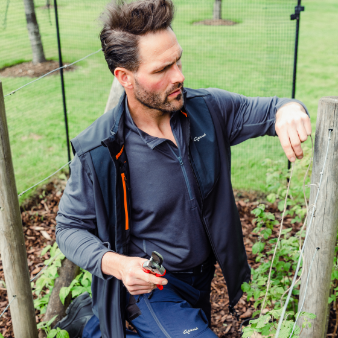Say goodbye to allergies when gardening

Gardening offers many health benefits: it increases flexibility, provides a workout, helps to keep you supple and can even boost your mood, alleviating depression and anxiety. But for allergy sufferers, gardening can become very challenging, even during the winter months.
Itchy, watery eyes, a runny nose or wheezing is enough to make you down tools and head for the sanctity of your sofa, but dedicated gardeners can take steps to reduce allergies and irritation. Whilst most sufferers are affected between March and October, tree pollen can cause issues throughout the year. These tips will help you to wave bye-bye to allergies and get back to gardening in no time.
- See an allergy specialist or your GP, who can determine what’s causing your allergies or prescribe medication to provide relief from symptoms
- Keep an eye on the daily pollen count. Levels tend to be lower early in the morning and late evenings, making these prime gardening times for allergy sufferers
- Get rid of problem plants. Weeds and evergreens can aggravate allergies, so stick to plants such as bulbs, daisies, cacti, petunias, pansies and dahlias, which are all less likely to cause those pesky symptoms
Another useful tip is to wash clothing and take a shower after gardening, using a saltwater wash to remove pollen from your nose. Don’t let allergies get in the way of your favourite hobby; there are plenty of ways around the problem.







